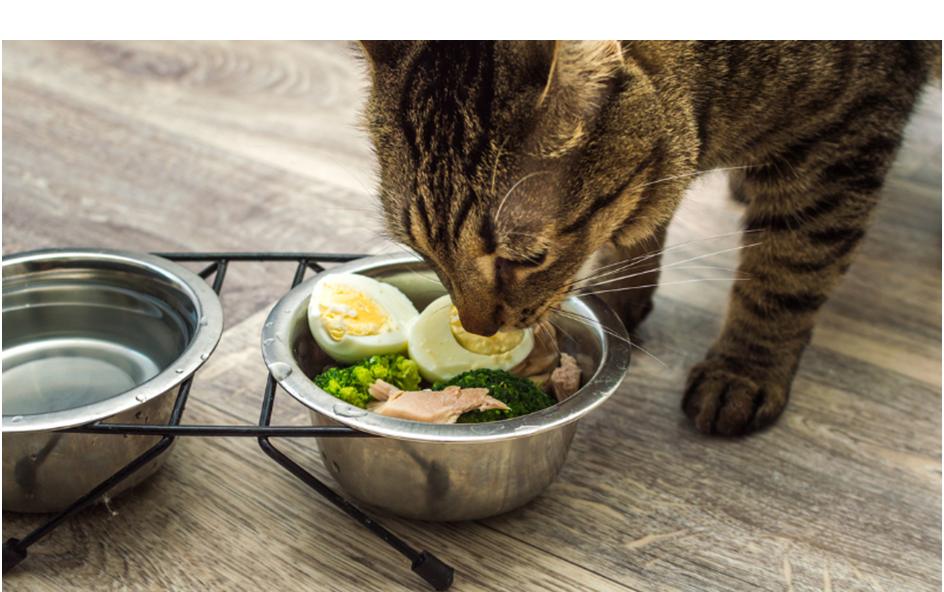
Gently cooked cat food has gained popularity among pet owners seeking to provide their feline companions with a diet that offers the benefits of homemade meals while ensuring nutritional adequacy. However, it’s essential to understand the importance of maintaining proper nutrient balance to support your cat’s health and well-being effectively.
Gently Cooked Cat Food
Gently cooked cat food refers to meals that are prepared using gentle cooking methods, such as lightly steaming or poaching, to preserve the nutritional integrity of the ingredients. This approach aims to retain essential vitamins, minerals, and proteins while enhancing palatability for cats who may have preferences for freshly prepared foods over commercial options.
Benefits of Gently Cooked Cat Food
One of the primary benefits of feeding gently cooked cat food is the ability to control ingredient quality and freshness. By preparing meals at home, pet owners can select high-quality ingredients such as cooked cat food meats, gently cooked cat food vegetables, and whole grains that meet their cat’s specific dietary needs and preferences.
Importance of Nutrient Balance
Achieving and maintaining proper nutrient balance is crucial when preparing gently cooked cat food. Cats require a diet rich in animal-based proteins, essential amino acids, vitamins, and minerals to support their unique nutritional requirements. Lack of adequate nutrients can lead to deficiencies or imbalances that may impact your cat’s overall health and longevity.
Key Nutrients for Cats
When preparing gently cooked cat food, prioritise ingredients that provide essential nutrients such as taurine, omega-3 fatty acids, vitamin A, and calcium. Taurine, for example, is critical for feline heart health and vision, while omega-3 fatty acids support skin and coat health. Vitamin A plays a role in immune function, and calcium is essential for bone strength and muscle function.
Common Mistakes in Gently Cooked Cat Food Preparation
Despite the benefits, pet owners may overlook certain aspects of nutrient balance when preparing gently cooked cat food. Common mistakes include inadequate protein content, insufficient variety in ingredients, and overcooking foods, which can reduce nutrient availability. It’s essential to consult with a veterinarian or certified pet nutritionist to ensure recipes meet your cat’s nutritional needs.
Balancing Protein and Carbohydrates
Cats are obligate carnivores, meaning they require a diet high in animal-based proteins to thrive. When preparing gently cooked cat food, ensure that protein sources such as lean meats (e.g., chicken, turkey) or fish are the primary ingredients. Limit carbohydrates to a minimal amount, as excessive carbohydrates can lead to weight gain and digestive issues in cats.
Variety and Rotation of Ingredients
To provide a well-rounded diet, incorporate a variety of protein sources and rotate ingredients regularly. This practice helps prevent nutrient deficiencies and allows cats to enjoy different flavours and textures. Include cooked cat food vegetables like spinach, carrots, and peas to provide fibre and essential vitamins, enhancing the nutritional profile of the meals.
Supplementation and Fortification
Depending on your cat’s health needs, supplementation with vitamins or minerals may be necessary to ensure balanced nutrition. Consult with your veterinarian to determine if additional supplements such as vitamin E, D, or B-complex are needed to complement the gently cooked cat food diet effectively. Avoid over-supplementation, as excessive vitamins or minerals can be harmful to cats.
Monitoring Your Cat’s Health
Regularly monitor your cat’s health and well-being when transitioning to or maintaining a gently cooked cat food diet. Watch for signs of nutritional deficiencies, such as dull coat, lethargy, or changes in appetite. Schedule regular veterinary check-ups to assess your cat’s overall health and discuss dietary adjustments as needed based on their age, activity level, and health status.
Conclusion
While gently cooked cat food offers the benefits of homemade meals and enhanced palatability for cats, it’s essential to prioritise nutrient balance to support optimal health and well-being. By understanding the nutritional needs of cats and avoiding common mistakes in food preparation, pet owners can provide their feline companions with a diet that meets their dietary requirements and promotes longevity.
Visit BOM BOM’s website today to know more!







